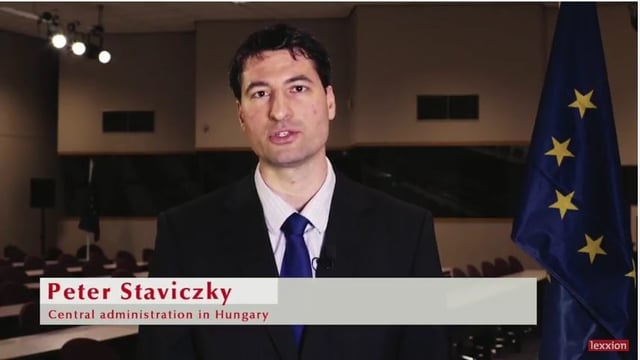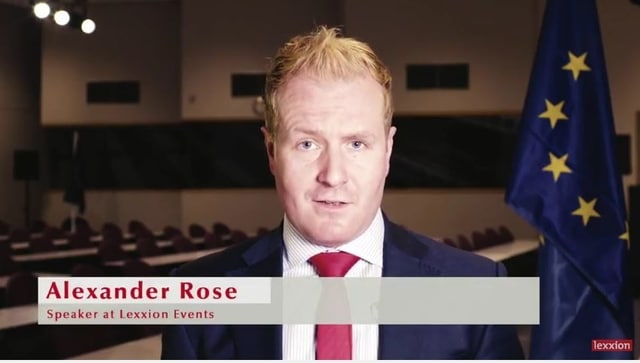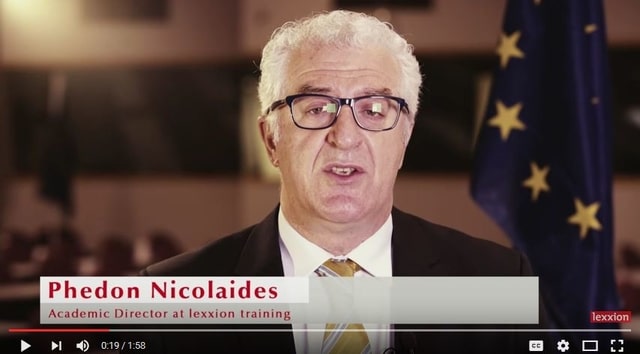This is the second article in a series of three that reviews the Commission’s Notice on the Notion of State Aid.* Last week’s article focused on the concepts of economic activity and state resources.** Next week’s article will conclude with a presentation of the conditions under which trade is affected and competition distorted and an analysis of the application of […]
State Aid Law
Blog
State Aid Uncovered Blog
In Lexxion’s State Aid Uncovered blog, Prof. Phedon Nicolaides publishes weekly critical analyses of recent State aid judgments and decisions. Each post presents the key points of a court judgment or EU Commission decision, places it in the context of similar case law or practice, assesses the underlying reasoning and highlights any inconsistencies or contradictions.
Guest contributions from other State aid experts will also be published on the blog at irregular intervals to complement the content of the blog posts.
30. August 2016 |
State Aid Uncovered
by Phedon Nicolaides
23. August 2016 |
State Aid Uncovered
by Phedon Nicolaides
The Notice provides a thorough review of the case law and the decisional practice of the Commission. Introduction After more than two years of deliberations, the Commission Notice on the Notion of State Aid was published in the Official Journal on 19 July 2016.[1] The Notice presents “the Commission’s understanding of Article 107(1) of the Treaty, as interpreted by the […]
18. August 2016 |
Guest State Aid Blog
by Lexxion Publisher
What is State aid? Why do I need to be concerned about State aid? These and many more basic questions are answered in our videos on YouTube. Make sure to visit us! Today one of our speakers and Attaché for State aid of the Hungarian central administration, Peter Staviczky explains how you notify State aid to the European Commission. Find out how to […]
16. August 2016 |
State Aid Uncovered
by Phedon Nicolaides
Member States must publish the aid measures they adopt on the basis of the GBER. Failure to publish prevents them from being exempted from notification and renders any aid illegal. Introduction On 21 July 2016, the Court of Justice delivered a judgment in response to a request for a preliminary ruling in case C-493/14, Dilly’s Wellnesshotel v Finanzamt Linz.[1] An […]
11. August 2016 |
Guest State Aid Blog
by Lexxion Publisher
What is State aid? Why do I need to be concerned about State aid? These and many more basic questions are answered in our videos on YouTube. Make sure to visit us! Today Alexander Rose from the Government Legal Service of the UK explains what the GBER (=General Block Exemption Regulation) is and how to use it. Watch the video, comment and […]
4. August 2016 |
State Aid Uncovered
by Lexxion Publisher
What is State aid? Why do I need to be concerned about State aid? These and many more basic questions will be answered in our videos on YouTube. Make sure to visit us! After Phedon Nicolaides has given us examples of “good aid”, today he answers the question “What can I do if my measure contains State aid?”. View the […]
2. August 2016 |
State Aid Uncovered
by Phedon Nicolaides
Tax rulings on transfer pricing have to approximate market-based outcomes. Introduction Twenty years ago, the European Commission initiated discussion on how State aid rules could apply to direct taxation. In 1998 it adopted its Notice on direct business taxation. At about the same time the Commission launched several formal investigations which culminated in negative decisions. In 2013 and 2014, […]
28. July 2016 |
State Aid Uncovered
by Lexxion Publisher
What is State aid? Why do I need to be concerned about State aid? These and many more basic questions will be answered in our videos on YouTube. Make sure to visit us! 7 weeks ago we started our new State aid journey on YouTube and thank you for viewing our videos, commenting and subscribing to our channel! Today […]
26. July 2016 |
State Aid Uncovered
by Phedon Nicolaides
The existence of market failure is not necessary for aid to be declared compatible under Article 107(3). Market failure does not mean that the market is completely unable to supply a good or service. State aid aiming to remedy market failure may be compatible with the internal market even if it has a negative impact on some market operators. […]
21. July 2016 |
State Aid Uncovered
by Lexxion Publisher
What is State aid? Why do I need to be concerned about State aid? These and many more basic questions will be answered in our videos on YouTube. Make sure to visit us! Last week Phedon Nicolaides gave examples of „good aid“. Today he explains which types of State aid are compatible with the internal market, such as environmental aid, regional development […]
16. November 2015 |
State Aid Uncovered
by Phedon Nicolaides
Favourable tax treatment to alleviate “structural disadvantages” suffered by certain companies is a selective measure that falls within the scope of Article 107(1). Introduction Member States use taxes not just to raise revenue but also as instruments of public policy. They impose taxes on activities they want to discourage [e.g. smoking, driving] and they relieve from taxes activities they […]
10. November 2015 |
State Aid Uncovered
by Phedon Nicolaides
The value of land corresponds to its market price that can be determined through open and unconditional bidding. If a price cannot be determined through bidding, then expert valuation is an alternative method for establishing the value of land. Expert valuation has to be carried out ex ante, by a recognised independent surveyor, on the basis of reasonable assumptions and […]
4. November 2015 |
State Aid Uncovered
by Phedon Nicolaides
Incompatible State aid must be recovered from “successor” companies which acquire previously aided companies and enable the latter to continue their operations without any change. Introduction In this article I review two decisions in which the Commission determined that incompatible aid had to be recovered from “successor” companies. Those were companies which had obtained the assets of the […]
27. October 2015 |
State Aid Uncovered
by Phedon Nicolaides
A SGEI provider does not have to be efficient by industry standards in order to receive compensation for its next extra costs. Although the conditions for compatibility of public service compensation under Article 106(2) TFEU appear to be similar to the Altmark criteria, they have very different objectives. Introduction Even since the Altmark judgment of July 2003, public authorities […]
20. October 2015 |
State Aid Uncovered
by Phedon Nicolaides
Should the amount of recoverable aid be similarly reduced by the amount that is allegedly passed on to consumers? I will argue the case against it. Introduction On 5 February 2015, the General Court, in cases T-473/12, Aer Lingus v Commission[1] and T-500/12, Ryanair v Commission[2], annulled Article 4 of Commission Decision 2013/199. In that decision the Commission found that a […]
13. October 2015 |
State Aid Uncovered
by Phedon Nicolaides
When Member States impose PSOs they are never allowed to grant even a single euro in excess of the net extra costs of the PSO. That is prohibited for the simple reason that it results in over-compensation. Introduction The Lexxion seminar on state aid for transport and transport infrastructure that took place in Brussels on 21-22 September (view […]
5. October 2015 |
State Aid Uncovered
by Phedon Nicolaides
In this article I review Commission decision SA.37100 on JSC Liepajas Metalurgs [LM], once Latvia’s largest steel company and major employer. The decision examines whether Latvia acted promptly to recover a debt owed to it by a company that faced financial difficulties. The question was whether Latvia acted as a private creditor when it allowed the debtor to continue operations. […]
29. September 2015 |
State Aid Uncovered
by Phedon Nicolaides
A public authority, acting as a private investor, may provide finance which is free of state aid to an airport and at the same time grant state aid to the same airport. Public funding of activities that fall within the exclusive tasks of the state is not state aid. When a public authority defines the activities that fall within the […]
25. September 2015 |
State Aid Uncovered
by Phedon Nicolaides
Regulation 2015/1589 is the new procedural regulation. It lays down the rules for, among other things, notification of state aid, formal investigation, injunctions and recovery of incompatible aid. Because of its importance in the EU system of state aid control, it will be fully reviewed at a forthcoming article. In the Official Journal of 24 September 2015 you will find […]
22. September 2015 |
State Aid Uncovered
by Phedon Nicolaides
Infrastructure that is commercially exploited [e.g. charging of tolls] is an economic activity. Infrastructure that is freely available to users is not economic activity. Access fees or tolls may be regulated. State aid must be necessary and proportional even if access fees are regulated. Introduction This article examines Commission decision SA.39078 concerning the Fehmarn belt fixed link in Denmark.[1] This […]




















